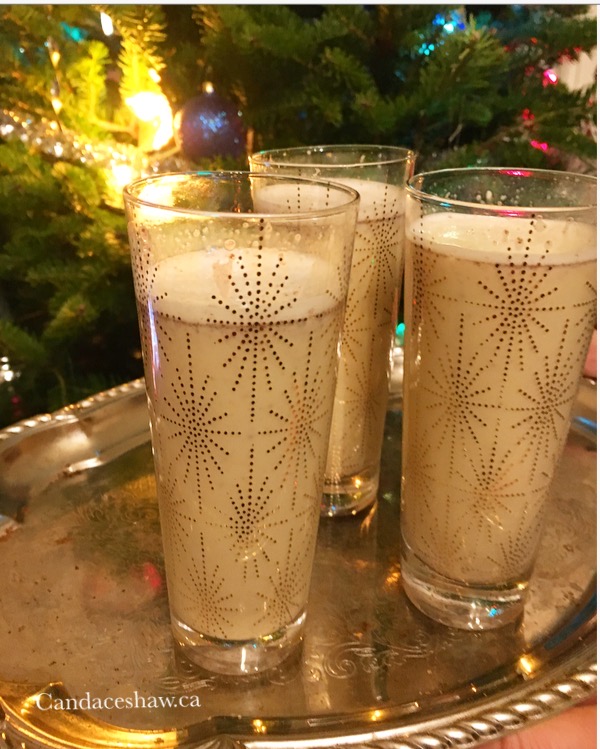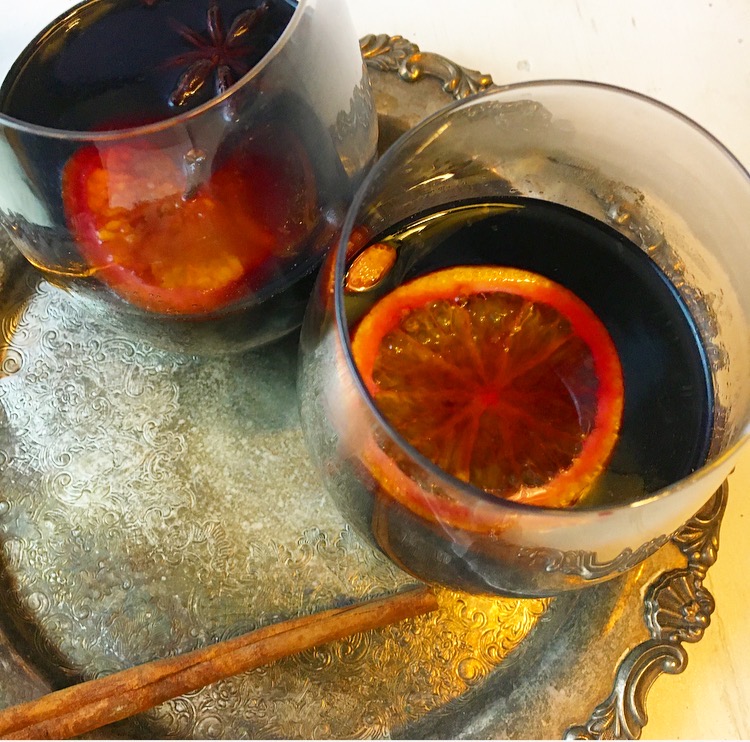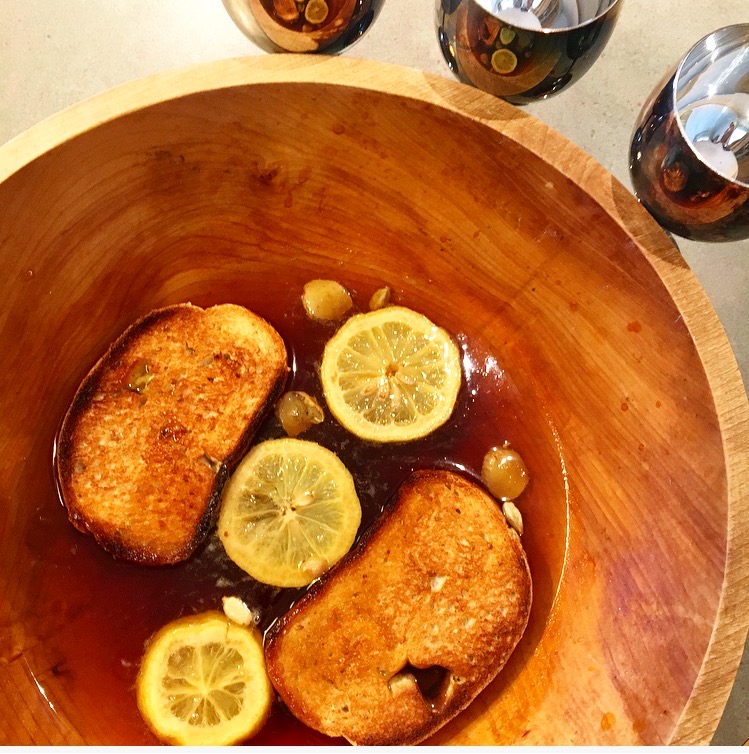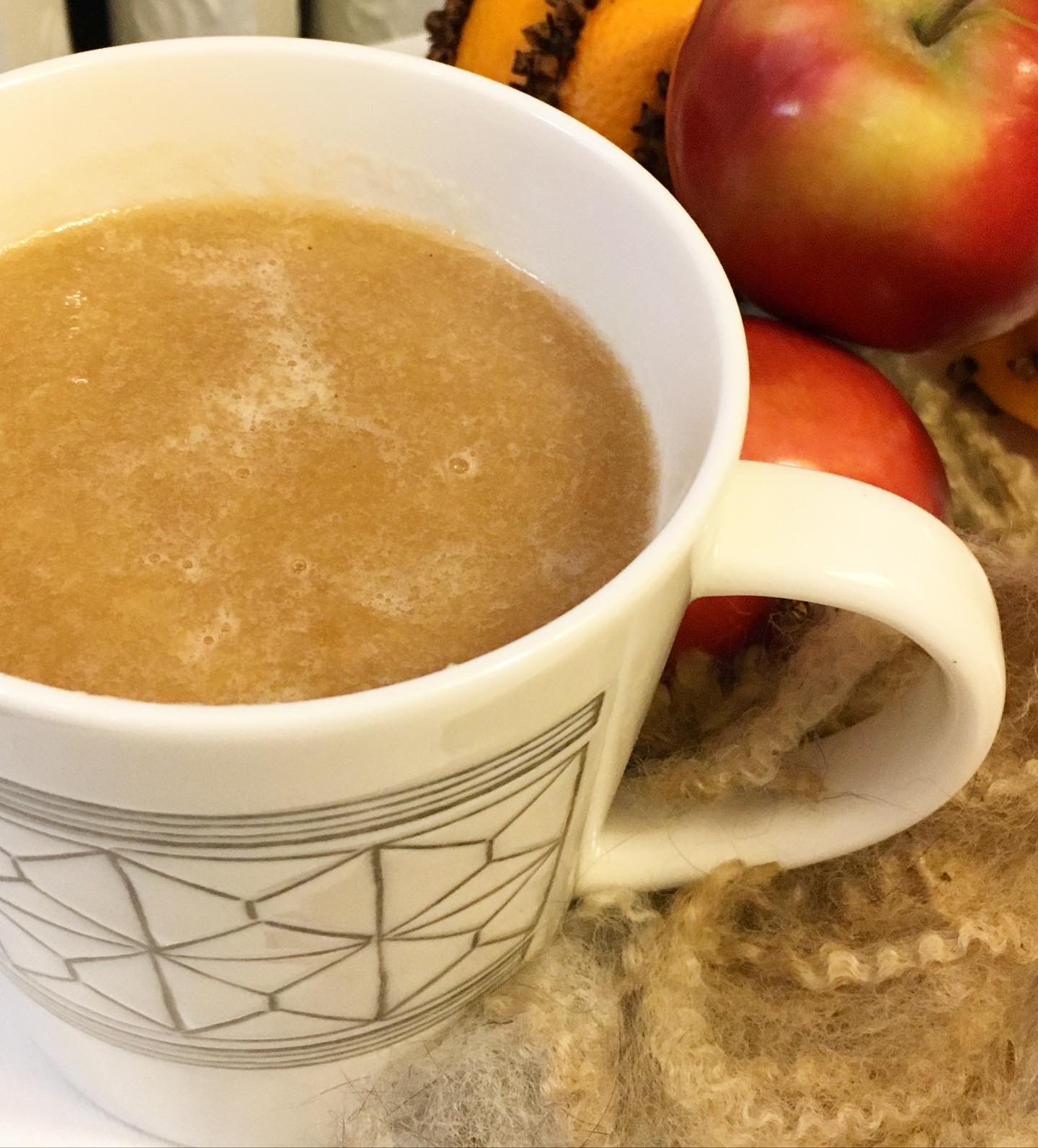
Lamb’s Wool
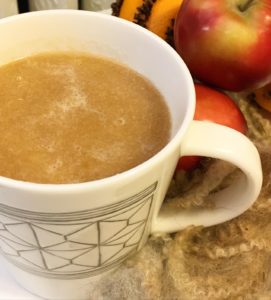
Lamb’s Wool is an old recipe, a drink that was made in celebration during the dark, festive season, often as part of the tradition of wassailing – in this case, a kind-of ritual toasting the apple orchards (and often other crops, fields, and livestock) to ask for a good harvest in the coming year.
In the photo below, I’ve included some real rovings of natural wool from a sheep, so you can see that the colour is actually quite close to real wool. it also has a thick texture, that’s comforting, warm, and hearty.
When I decided to try making it, I had a lot of research to do. Years ago at a Medieval event, I’d had something they called Lamb’s Wool, which I tried – it was a mulled cider topped with whipped cream, and was pretty good. But over the years, the historical recipes I’d seen were quite different, with an ale base. So I did some reading. Modern recipes online also often call for hard cider, but in the oldest recipes I’ve found from the 19th century, the base was always ale.
I’ve included some 19th century recipes below – I haven’t found any older versions, but I wonder if that might be because this is a ‘country’ drink, part of an old ritual which was probably not entirely sanctioned by the church. So as a result, it may not have made it into the cookbooks that were used by the chefs of the wealthy upper classes. If you’ve got any earlier sources, please let me know in the comments below!
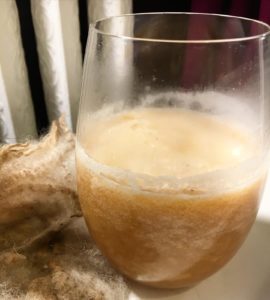
Lamb’s Wool
For this recipe I decided that a Scotch Ale would be the closest to an early ale; I could be wrong, but that’s the direction I decided to go – not least of which because I like Scotch Ales. My roommate, The Thirsty Wench, recommended Highlander Ale, but unfortunately I couldn’t get my hands on any, so I went for Innis and Gunn as a decent substitute. I’ve seen some modern recipes that specifically call for real ale, but neither she nor I could see any particular advantage to using it.
I also chose Macintosh apples, a Canadian variety discovered in 1811, since they’re my favourite. If you’re looking for information on early period apple cultivars, there’s a great resources at Medieval Cookery http://medievalcookery.com/notes/fruit/fruit.html
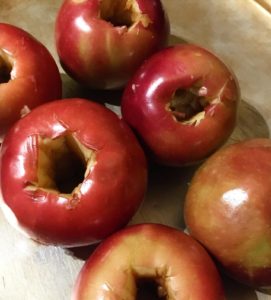
Ingredients
6 apples (I used Macintosh)
4 cups ale (I used Innis & Gunn Scotch Ale)
2 tbsp brown sugar (more to taste)
Nutmeg to taste (use fresh grated nutmeg if possible)
Fresh ginger, sliced – 2-3 slices
Optional
Small cinnamon stick
3-5 whole cloves
Equipment
Sauce pan
Baking tray
Tinfoil
Sieve
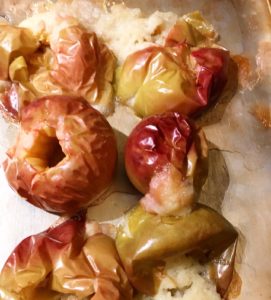
Directions
- Wash and core 6 apples (I recommend cutting apples in half and then removing stem, core, and seeds).
- Preheat oven to 350 F; roast apples on a baking tray for 40 minutes, until soft (I recommend lining the baking tray with tinfoil to catch all of the delicious roasted apples juices).
- In a sauce pan, warm 4 cups ale with spices on the stove until hot.
- Remove spices from ale.
- Using a sieve, mash apples through sieve into the hot ale.
- Stir to combine.
- Serve in a mug while still hot.
Historical Recipe Sources
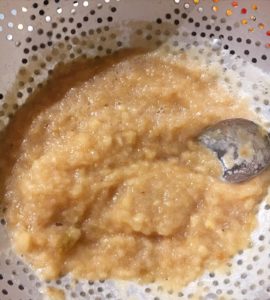
I’ve included the historical recipe and it’s source, which are more or less the same as the recipe above. The historical taste for nutmeg generally is overpowering for modern people, so I urge you to try a quarter of a nutmeg or less, rather than an entire nutmeg.
Lambs Wool was anciently often met with in Ireland, but is now rarely heard of in that country, having been entirely superseded by the more intoxicating liquor called Whiskey.
Recipe
Mix the pulp of half a dozen apples with some raw sugar, a grated nutmeg, and a small quantity of ginger. Add one quart of strong ale made moderately warm. Stir the whole well together and if sweet enough it is fit for use.
This mixture is sometimes served up in a bowl with sweet cakes floating in it
Cooling Cups and Dainty Drinks, 1869
Lamb’s Wool
Roast 8 apples; mash them, and add 1 quart of old ale; press and strain; add ginger and nutmeg (grated); sweeten to taste; warm, and drink while warm
